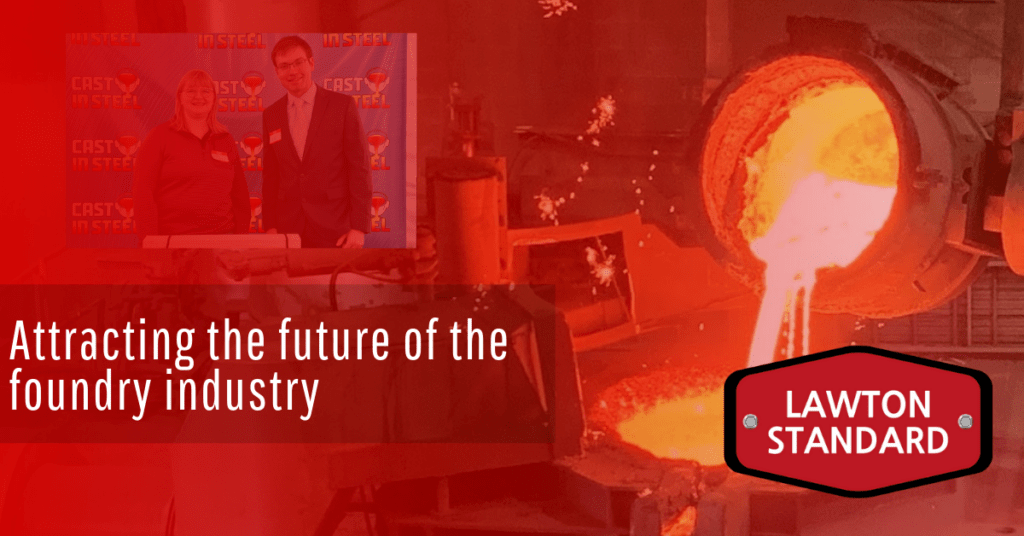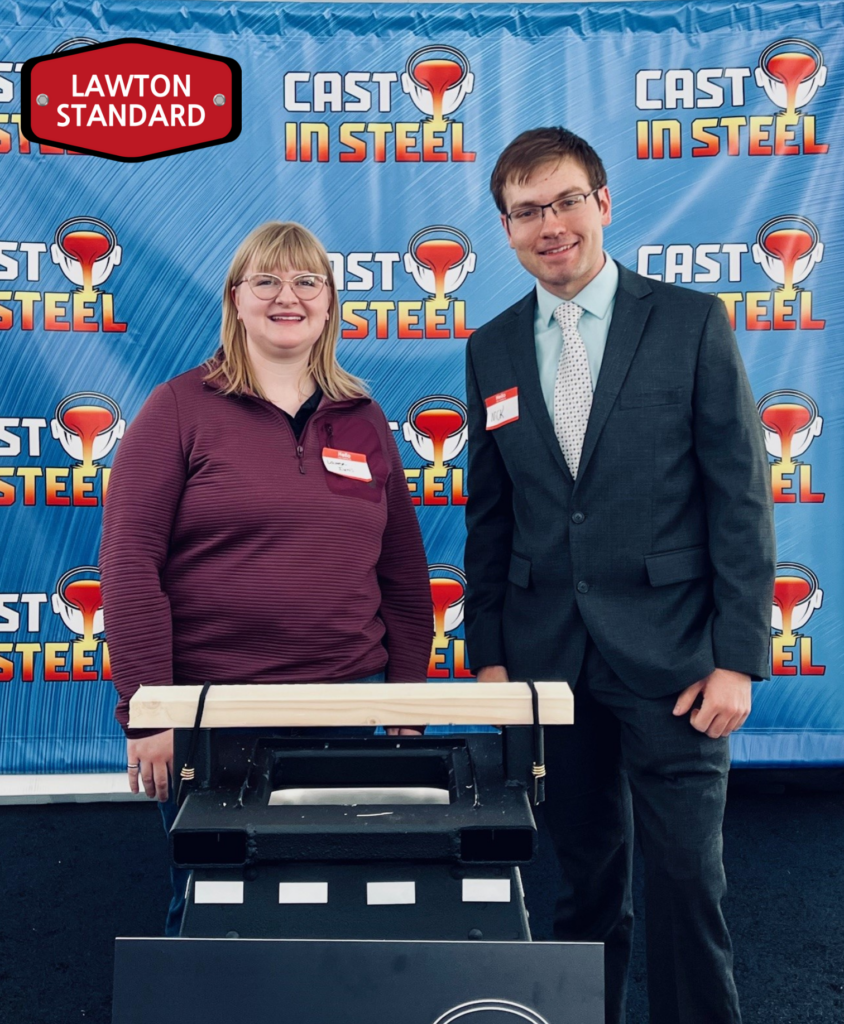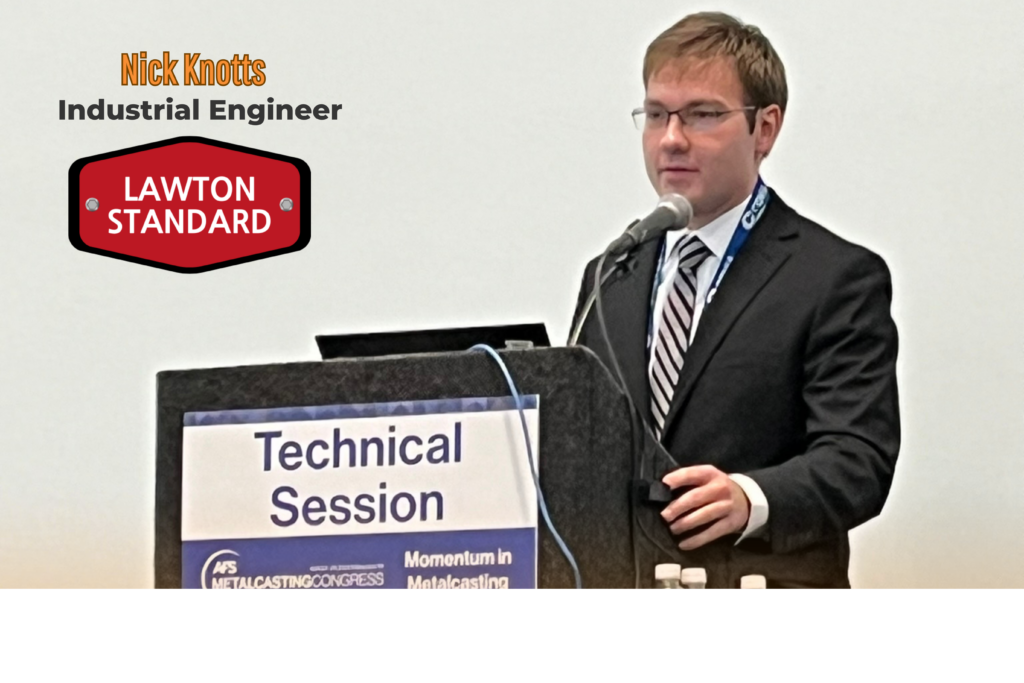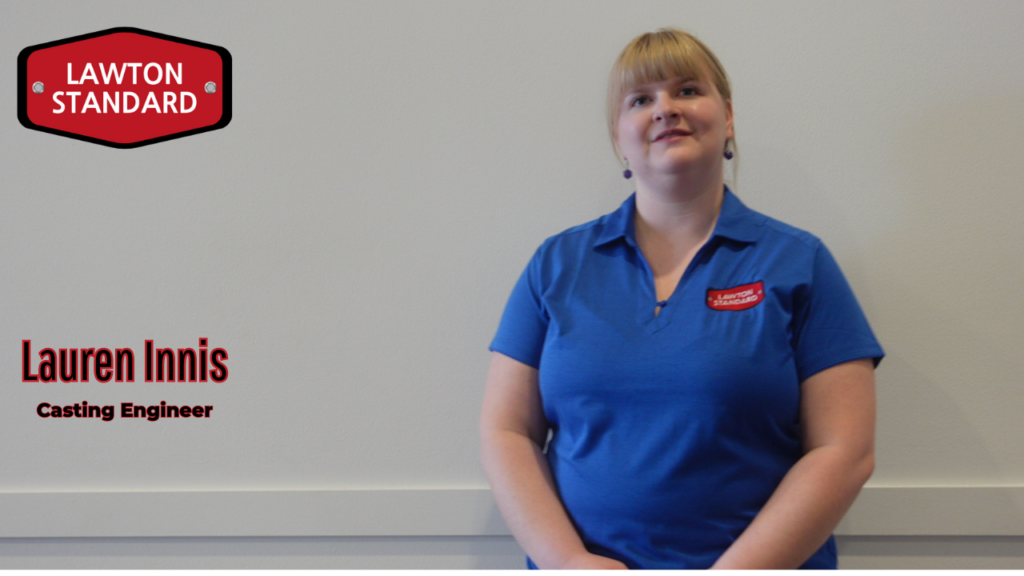
The foundry industry has a wide variety of interesting and intriguing careers. From engineering to metallurgy, melt deck operations to furnace maintenance, spectrometer operator to automated machines. The possibilities are great and the foundry industry needs more young people to get involved.
We caught up with Lawton Standard casting engineer Lauren Innis and Lawton Standard industrial engineer Nick Knotts at this year’s AFS Metalcasting Congress in Milwaukee, Wisconsin. They discussed the need for more young people to pursue a career in the foundry industry.

New ideas and innovation for the foundry industry
“We need to lure young people into the industry because a lot of our legacy people are retiring,” said Nick Knotts. “We need new blood, we need new ideas and we need to constantly innovate to stay competitive.”
Lauren Innis added, “foundry careers are really interesting and engaging, it gives young people an opportunity to really work in the physical world around them.”
Programs to help recruit young people into the foundry industry
According to Knotts, Lawton Standard is already working on an internship program which is hopefully launching within the next year. Lawton also participates in research with the Steel Founders’ Society of America and the American Foundry Society. “Next year we are going to be doing a Cast in Steel team at our steel foundry at Temperform,” said Knotts. “It’s an excellent competition the Steel Founders’ Society puts on every year for universities around the nation.” Nick also hopes to get Lawton Standard involved in the Foundry Educational Foundation, which provides scholarships to college students.

Careers in the foundry industry
“What was most impactful for me in starting my foundry career was establishing a good mentorship, someone who was in the foundry industry and was able to tell me about their experience,” said Innis. She added that a lot of universities have small foundry programs where you can get into a foundry and see how metal castings are made. There are metallurgical, chemistry, mechanical engineering and metrology programs at colleges and universities. Trade schools are a good resource too, offering programs like welding and pattern making. “One of the things the foundry industry severely needs is people who are able to make patterns, as it is both an art and a science,” said Innis.

“The great thing about the foundry is you can try anything and the worst thing that can happen is you remelt the casting,” said Knotts. “So you have a lot of freedom to try new things.” Nick added that the industry is in need of maintenance and technical people on the foundry floor in careers like spectrometer operator, foundry maintenance, automated machines and complex furnaces. He said the technical side, like engineering and metallurgy, is also a need in the industry.
Lauren Innis is really excited to be part of the Lawton Standard team. “I love the opportunity I have to work with the engineering team at Lawton Standard. I think they are a really engaging group that is looking forward to developing the technology of the future,” said Innis. “The reason I like working in the foundry so much and the reason I think you should consider it too, is really every day is different and you’re facing unique challenges and you get to work with really interesting and intelligent people.”
Resources for students getting into the foundry industry

There are a variety of organizations helping young people break into the foundry industry. Those organizations offer training, educational programs and scholarships.
The American Foundry Society created the Foundry Educational Foundation (FEF) in 1947. Today, that foundation offers scholarship at 33 colleges and universities in North America. Those scholarships range from $500-$3,000. The AFS also has the Stephen Ducharme Student Scholarship which is open to any student in material science, engineering, computer science or other metalcasting areas of education at accredited colleges and universities in North America. The H.H. Harris Foundation Scholarship provides scholarships and other forms of educational aid to students and professionals in the metallurgical and casting of metals fields.
The Steel Founders’ Society of America also has educational programs, training and scholarships for students looking to pursue a career in the foundry industry. The Steel Founders’ Society Foundation offers educational and scientific aid for students. The Peaslee Scholarship is awarded to a student intern that has worked at an SFSA member foundry in the area of melting and refining. It is worth $1,000. Another $1,000 scholarship is the Schumo Scholarship. It is awarded to a student intern that has worked at an SFSA member foundry on a particular project.
The SFSA also hosts the Cast in Steel competition for college students each year. Student groups are given an item they have to design and cast and make sure that it is functionable. This past year’s competition featured teams making Halligan bars used by firefighters.
